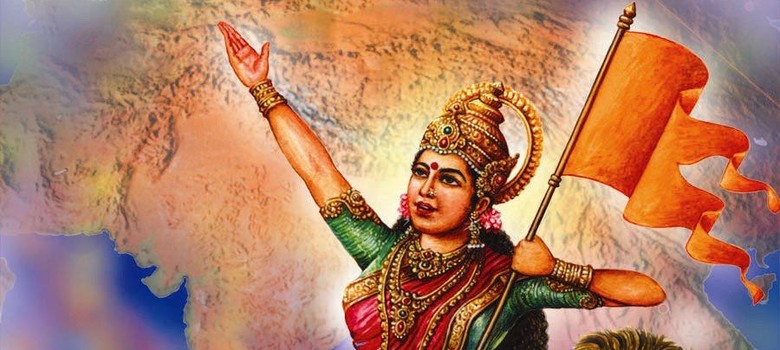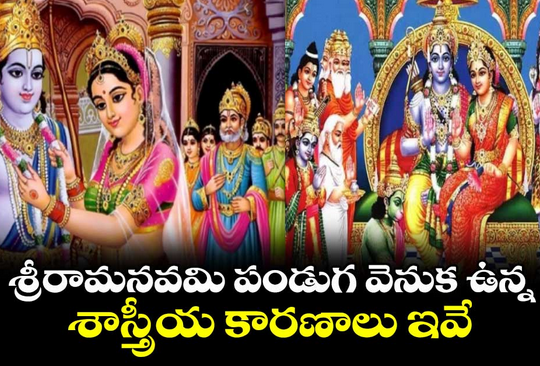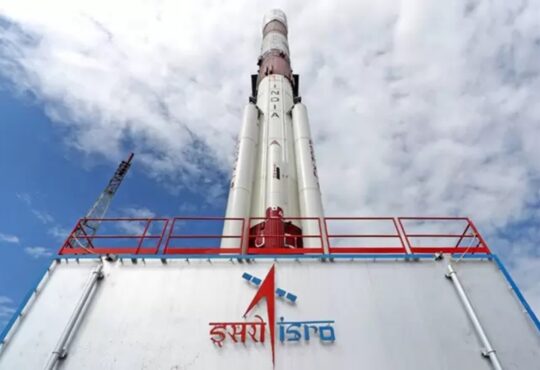
Dr. Manmohan Vaidya
Sah Sarkaryavah, Rashtriya Swayamsevak Sangh
The grand Shri Ram Mandir construction commencement ceremony held in Ayodhya was proudly witnessed by Bharatiya people in Bharat and all other parts of the world. On the one hand when overcoming innumerable hurdles of a centuries-long battle it was a dream-come-true for some, for the ‘secularists’ of the nation, especially politicians who under the garb of secularism engage in communal politics, and the ‘intellectuals’ and journalists who are in the business of divisive and anti-national activities, appear to be edgy about the event. Few of the secular politicians, being cognizant of the elevated general level of national-consciousness, changed their stance in Ram-Mandir, as they feared dire consequences in upcoming elections. But the so-called intellectuals and journalists, who make a living by indulging in divisive activities and anarchy cried wolf stating, “Indian Constitution is in danger as secularism is under threat.” With these cries, they are trying to delude the masses into believing as if the ‘Secularism’ they practice is at the heart of Bharatiya Constitution and that it was an integral part of the constitution right from the beginning. This is like convincing the cart horse that he was born bridled.
Self-professed guardians of the Constitution, this chorus claims the Constitution has been frauded. In reality, the deceptive induction of this word in the Constitution was the actual ‘fraud’ dealt with the Constitution. Our Constitution makers were not unacquainted with the concept of Secularism. After an intense debate over Shri. K. T. Shah’s suggestion to define Bharat as “secular-socialist-republic,” members of the Constituent Assembly deemed it unnecessary in Bharatiya context and hence kept it out. Secularism is attributed to the peculiar socio-political context of Europe. Secularism was a reaction to the 1000-year-long historical context of the theocratic State ruled by the Pope. To separate and free the control of non-religious matters from the Church, secularism was brought into practice. However, such need did not arise here in the long history of Bharat as we never had a concept of theocratic State; considering the spirituality based- integral and holistic concept of life, our Constitution makers did not visualise such possibility in the future. We never had a theocratic state. The all-inclusive ancient civilisation of Bharat that adheres to the holistic and integral Hindu view of life was a testimony for the Constituent Assembly that even in the future no such need will arise.
This word ‘secularism’ was inserted in the Constitution in the year 1976 when ‘Emergency’ was imposed upon the country, democratic norms were compromised and the opposition was absent from the Parliament (as opposition leaders were forcefully detained and those who escaped detention were underground). In the well-organised Bharatiya judicial system, we have a provision to challenge lower-court judgments at the higher courts. In the face of higher courts’ failure to do justice one may knock at the doors of the apex court. And if the apex court judgment is inconclusive or unsatisfactory then the provision to refer the matter to a larger bench of judges is also available. Where problem-solving necessitates the constitutional amendment, parliament can do so after a debate, and requisite type of majority. But the connive of including the word ‘secular’ – previously declined by the Constituent assembly – did not undergo any such legal scrutiny. Amidst the terror of Emergency, in the absence of any need, demand or debate, this insertion was evasively made to the preamble of the Constitution and this is the real fraud dealt with the Bharatiya Constitution.
Having engulfed Bharatiya imagination over the decades, this ‘Secularism’ is causing havoc in our national and social life, but its definitive meaning is still a matter of debate. Even the Constitution has not provided for any definition of the same. Against the backdrop of this semantical mystery, organised efforts to impose this conspiratorially added foreign concept on Bharatiya collective conscience are underway to create confusion. Assuming secularity pertains to religious neutrality on the part of the State where followers of all religions are entitled to equal rights and opportunities, then, this magnanimity has been a Hindu tradition since time immemorial. Therefore, being a country with a Hindu majority, Bharatiya Constitution had inbuilt provisions regarding the same. Moreover, the ‘religious minorities’ are assured with special rights under the constitution, which the ‘majority’ Hindu is not given. What could be the motive behind surreptitiously adding ill-defined ‘secular’ to the constitution despite these provisions? Critical analysis of the socio-political developments that took place in the aftermath of this foul play evidently prove that this fraud was committed to create an environment congenial for divisive and communal politics in the country, and to nurture and protect those whose agenda is to break the nation into fissiparous society. What is the impact of such an ill-conceived move on the society? In the name of secularism, divisive-communal agenda is blatantly encouraged and promoted, while those who call their misdeeds out are labelled communal!
A ‘secular’ prime minister openly made a blatant communal statement – “Minorities (means Muslims) have the first claim on resources,”. Despite the unconstitutional nature and despite of repudiation by high courts and the Supreme court, leaders of few secular parties time-and-again propose to create reservations for religious minorities. If Bharat is secular in the true sense of the term then the government should not provide Haj Subsidy. Some Islamic scholars have claimed that only a pilgrimage done using one’s own means is recognised in Islam, therefore, no other Islamic country provides a Haj Subsidy. Subsistence of this practice in post-colonial Bharat is both non-secular and anti-Islamic. Indiscriminate vote-bank politics is practiced here by employing tactics like making religious ground a criterion for giving out scholarships to students, providing cycles to Muslim school-going girls exclusively, offering financial aid for Muslim girl-marriage only and so on. “Secularism is under threat” brigade conveniently turns a blind eye to such moves. On the lines of Haj subsidy, in order to acquire Christian votes, a ‘secular’ state-government announced subsidy for a trip to Jerusalem, but we didn’t hear a peep from the champions of secularism there. Overlooking the court rulings, a ‘secular’ state government announced reservation for Muslims thrice. Did the cat get the tongue of the keepers of Secularism, then?! The government must have control over the offerings made at Hindu temples, while offerings made at the places of worship of other religions may go unaudited – is this secularism? Any discrimination by the State on the basis of religion is unacceptable as per secularism, but the defenders of secularism maintain a stoic silence over these matters.

Recently a satirical viral social media post – “religion of the mob is not known, but of the human chain protecting the temple from the mob has a religion”- about the reportage of sponsored Bengaluru communal violence put the brand of Bharatiya ‘secular journalism’ under the scanner. Another famous post attributed to the Canadian journalist, Tarek Fatah, making the rounds of Social Media read, “India is the only major civilisational country where you are taught to hate your heritage and glorify the invaders who came to destroy it. And this (absurdity) is called ‘secularism’.”
Quintessential Bharatiya secularism entails legislatures and acts to annihilate Hindutva, Hindu beliefs and Hindu traditions. Sharing the dais with Owaisi (who openly espouses communal hatred) is ‘being secular’ while sharing the dais with an ascetic like Yogi ji is dubbed ‘communal’, here! Offering Chadar at dargah (Sufi shrine), government-sponsored iftar party and the like are signs of secularism, whereas participating in Pran Pratishtha Pooja of a temple is a grossly communal act that garners “secularism under threat” slogans. Seeped in the belief that the whole universe is inhabited by all-pervading spirituality (“ईशावास्यम इदं सर्वम यदकिंचित जगत्याम जगत”) is an ancient Bharatiya praxis to commence all relevant tasks by re-establishing and re-invoking the divine forces (दैवी अधिष्ठान). This is an expression of our spirituality, not some communal act. We’ve inherited the knowledge that various divine manifestations perpetuate different human endeavours – Saraswati for scholastic pursuits, Dhanvantri for medicine, Nataraja for dance and other performing arts, Hanuman for wrestling, Vishwakarma for crafts and aesthetics and so on. To invoke deities of one’s specific vocation, regardless of one’s religion, has for ages been the thumb rule in our land. In doing so we do not defy ‘secularism.’ But the insecure fundamentalists, Jihadi groups and other ‘breaking-Bharat’ forces try to relegate these pragmatic traditions here by distorting their meaning and misbranding these as ‘communal acts.’ Furthermore, political parties that made hay of the ‘minorities’ and ‘communal’ cards bolster those groups and in some cases act unmindful of them.
A journalist known to me engaged a Muslim-contractor at her newly-constructed house for carpentry work. The work was in progress when this man one day informed of his team’s impending absence the following day. To satisfy my acquaintance’s curiosity he informed they will celebrate Vishwakarma Jayanti, then that (Muslim) contractor explained the significance of Vishwakarma Jayanti to this Hindu journalist. Where Bharatiya spirituality is second nature to a commoner like that contractor it appears to be rocket-science to the secular jamaat of Bharat, or maybe they are too conceited to acknowledge it. In the light of this emerging brand of new secularism, it is imperative to redefine secularism- blind opposition of religion and religiosity fits just right.
Classical spirituality-based Bharatiya view of life is intrinsically holistic and integral. This philosophy or way of life came to be known as Hindutva among people outside Bharat. The glaring differences between life conditions of people living under the framework of two separate constitutions of two nations that emerged from partition of the same landmass – India and Pakistan – is reason enough to believe ‘Sarva Dharma Sama Bhava’ is our disposition. Pakistan has failed to display the generosity toward each citizen of its country (regardless of their religion) that Bharat has exemplified. Bharatiya constitution owes its nobility to our Hindu roots, while Pakistan’s negation of granting equal opportunity to all stems from its denial of and alienation from Hindutva. If the essence of secularism is parity of various religious paths, then Hindus are beacons of Secularism, our conscience is fed on the fact “एकं सत विप्राः बहुधा वदन्ति” – “the truth is one, the wise express it in numerous ways.” In 1893, during his Parliament of World Religions address in Chicago, Swami Vivekananda described Bharat as “mother of all religions.” He then illustrated how followers of several religions fleeing religious persecution and conversion in their countries of origin found asylum in Bharat at various points in time and left behind sanctuaries for their future generations to freely practise their religion and way of life here. He summarized by saying “we go beyond tolerance and accept all ways to be true.” Hindus profess, live and breathe inclusion and acceptance.
The conspiracy of labelling the benevolent Hindutva communal and refashioning and serving gross unpalatable communal thoughts as secular has subdued our collective conscience and quelled our societal evolution for a few decades now. The enormity of this problem became palpable to me while reading the letter from a young woman who happens to be Sangh Karyakarta’s sister. Gauging her interest to write I suggested she share her thoughts over our discussion in writing. She wrote-
“I’m an Indian, which to me until a couple of days ago meant that I belong to India. I thought this was more of a physical, geographical and maybe even a cultural reality. I’m also a Hindu. But my faith- which is deeply personal to me has nothing to do with my national identity. Or so I thought. I never once thought to blend my faith and my national identity. They are not the same thing. In fact, I very strongly thought the two shouldn’t mix, for we, as “urban, modern, progressive” Indians are taught to not mix our religious and national identity. While being patriotic is great, we are taught not to wear being a Hindu on our sleeve –whether it’s at work or social gatherings, for it might offend other religions of India. Being Hindu and being Indian are two different things, and should be kept separate. Mixing the two is looked at as being communal and marginalising anyone who follows a different faith. India belongs to every faith equally, we are taught. India is a land of diverse cultures, we are taught.”

Being anti-religion or non-religious & irreligious are not necessary conditions to enact Secularism. Actually, it is impossible for any individual to be secular. If anyone claims to be one then they are either lying or are deluded. All human life is guided by some or the other underlying philosophy or religion. A man’s religion or way of life may be Hindu, Islamic, Sikh, Parsi, Jew, Jain, Buddhist, Vaishnav, Shaiva, Devi-worship, nature-worship or atheism. And every person has the right and freedom to practise one’s own religion which doesn’t endanger Secularism. Secularism expects all religions to be treated equally but if you go beyond treating all religions as equal and accept all to be true then you are a Hindu. Acharya Vinoba Bhave made a simple distinction which sums up the matter- “Salvation through this way only- non Hindu; Salvation through this way also– Hindu.”
I believe while the State must be secular, it is neither possible nor necessary for an individual to be secular. For instance, the State Transport Corporation must be secular, but demanding that for it to be secular its chairman must be secular is illogical. All passengers using the state transport service must be treated equally, but to say equal service will be available to all passengers only when the bus driver or conductor becomes irreligious is undesirable. We have all seen most Bharatiya bus drivers start the journey by paying obeisance to a deity(they believe in) and even the vehicle. How has that ever come in the way of secularism? Secularism on the part of the state transport corporation mandates all users have equal access to common facilities, the conductor must charge the same fare from all and no discrimination in seating arrangement must be made. Over and above special arrangements to help the elderly, women or people with special needs is understandable. But demanding special provisions stating one’s religion as the ground for privilege and calling it secularism sounds oxymoronic.
That young woman closed her letter by saying-
“A couple of days ago, I had a conversation about this with Dr Vaidya, of the RSS. It was only during this conversation that I realised how far from the truth was my “knowledge” of the subject. For the first time, I heard and absorbed what it really means to be “Hindu” and how it isn’t at all far from being “Indian” or “Bharatiya.” In fact, they are the same thing. Hindutva (Hinduism is a loose translation of the word, not quite accurate), is a way of life. It was life in this region of the world, much before religion existed. It was a way of life that continued to thrive, much after religion divided this country into two. And it will be a way of life here, despite the far-spreading business of religion today. Bharat or India is the seat of this way of life. The soul of this nation is this throbbing, thriving, celebration of diversity. Being Hindu is celebrating this diversity and recognising the underlying sameness in the glaring differences.
Bharat goes beyond the lines drawn on a map. Bharat is a concept of inclusivity and humanism that has transcended generations and generations, invasions after invasions. In the words of Ernest Renan: A nation is a spiritual principle… and not a group determined by the configuration of the earth… a nation is a soul… the nation, like the individual, is the fruit of a long past spent in toil, sacrifice and devotion. It couldn’t be truer for a nation like ours. Similarly, being Hindu goes beyond the God you worship. It’s the celebration of the various paths that lead to the same God. In its Hindutva lies this nation’s essence. I’m a Hindu, which makes me an Indian. I’m an Indian, which makes me a Hindu. And where I fold my hands or bow my head in worship have nothing to do with it.”
The new awakened Bharat is now ready to free itself of communal politics by rejecting the ‘breaking-Bharat’ forces that have pitted one Bharatiya against another and bluffed them with slogans like “Secularism under threat.” By embracing our traditional values of plurality, diversity and unity we are strengthening the chord of integrity that binds all Bharatiya people. This process is in the national interest and also in the interest of people following Islam or Christianity. Getting rid of this hypocritical and artificial secularism in turn will disable the machinery that has hollowed our society and is robbing us of our priceless heritage. When these selfish and anti-social hypocrites say ‘secularism in danger’ they actually mean their ‘pseudo-secularism’ and business based on the same is in danger. The nation is finally getting rid of such ‘secularism’ to strengthen unity, integrity and fraternity.
Source : VSK BHARATH.






